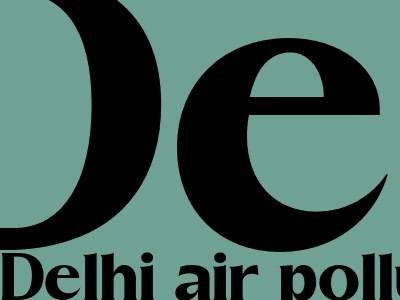
Delhi's Choking Crisis: Supreme Court Issues Stern Directives to Government
Air Pollution Grips Delhi, Leaving Citizens Gasping for Breath
The air in India's capital city, Delhi, has reached alarming levels of pollution, posing a serious threat to public health. A thick smog has enveloped the city, reducing visibility and causing respiratory problems among residents.
The Supreme Court of India has taken cognizance of the worsening air quality and issued a slew of directives to the government to address the issue. The court has ordered the government to implement stricter measures to curb pollution, including a ban on the sale of firecrackers and the imposition of stricter emission standards for vehicles.
SC Issues Directives to Government
The Supreme Court has directed the Delhi government to take the following steps to combat air pollution:
- Ban the sale and use of firecrackers during Diwali and other festivals.
- Implement stricter emission standards for vehicles, including mandatory PUC certificates.
- Increase the frequency of public transport to reduce traffic congestion.
- Promote the use of electric vehicles and provide incentives for their adoption.
- Set up air quality monitoring stations across the city to track pollution levels.
- Educate the public about the health hazards of air pollution and promote responsible behavior.
Health Impacts of Air Pollution
Exposure to high levels of air pollution can have severe health consequences, including:
- Respiratory problems, such as asthma, bronchitis, and lung cancer.
- Cardiovascular diseases, such as heart attacks and strokes.
- Neurological disorders, such as dementia and Parkinson's disease.
- Premature deaths, especially among the elderly and children.
Government's Response
The Delhi government has expressed its commitment to implementing the Supreme Court's directives and has taken several steps to address air pollution. The government has banned the sale of firecrackers, increased the frequency of public transport, and launched a campaign to promote electric vehicles.
The government has also established air quality monitoring stations across the city and is working to improve the monitoring system. The government is also conducting research to identify and address the sources of air pollution.
Conclusion
The air pollution crisis in Delhi is a serious threat to public health. The Supreme Court has taken a strong stand and issued directives to the government to address the issue. The government has taken several steps to implement the directives and is working to improve air quality in the city.